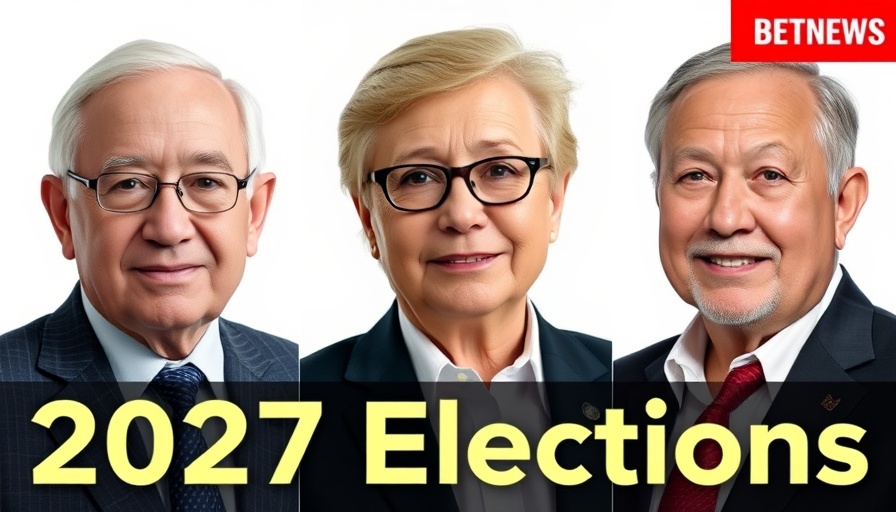
A Damning Incident: Comfort Emerson and Ibom Air
In a nation where the airwaves are frequently plagued by incidents highlighting systemic failures, the recent episode involving Comfort Emerson on an Ibom Air flight on August 10, 2025, has ignited a firestorm across Nigeria. The Nigerian Bar Association (NBA) has sharply condemned both Ibom Air and the Airline Operators of Nigeria for their actions leading to the public humiliation and forced removal of Emerson from the aircraft. The NBA characterized the airline's decision to impose a lifetime ban on Emerson as "reckless and unlawful," variously describing it as a blatant violation of her inherent right to dignity.
In 'NBA Slams Ibom Air Over Comfort Emmanson Incident,' the discussion dives into the implications of this troubling event, prompting deeper analysis of systemic issues surrounding gender-based violence in Nigeria.
Unpacking the Incident: A Violent Dehumanization
The actions taken against Emerson, who was unceremoniously stripped of her clothing during her removal, have sparked outrage among women's rights activists and civil society leaders. Leading voices in these discussions, including Josephine EA Chukuma, have articulated how the incident has underscored deep-seated issues of gender-based violence in Nigeria. Unlike other past disturbances—such as the inflammatory actions or protests surrounding public figures like Senator Shimo—Emerson's treatment raises crucial questions about systemic misogyny in both public and private spaces.
Selective Justice: The Echoes of Power and Gender Bias
Chukuma's poignant observations that highlight a broader context of female indignity reverberate through social media platforms, as public sentiment witnesses a wave of support for Emerson. Notably, many social media users have contrasted her treatment with the apparent leniency afforded to male public figures, exemplifying what some term "selective justice." Critics argue that if Emerson were from a powerful background, her treatment would have been drastically different—a notion reinforced by Chukuma and civil rights activist Mr. Raf Sanjani.
The Institutional Failure of Ibom Air and Regulatory Bodies
The swift action taken against Emerson raises troubling questions about the ability of airlines to execute their responsibilities with humanity and professionalism. Critics have pointed out that even though Emerson acted aggressively towards airline personnel, could there have been a better approach to de-escalate the situation without excessive force? This incident starkly illustrates the urgent need for comprehensive training for airline staff on gender sensitivity and conflict resolution, particularly in a country grappling with increasing reports of violence against women.
What the Future Holds: Insights on Aviation Industry Practices
The airline industry in Nigeria stands at a crossroads. Following the public uproar over Emerson's case, there exists a critical need for the restructuring of policies governing customer interactions and conflict management. Real-world implications of poor training resonate more deeply in today's global discourse on human rights and dignity. This creates an opportunity for the country to revamp existing protocols within the aviation sector to foster an environment where all passengers—regardless of their social status—are treated with respect.
Conclusion: A Call for Accountability and Change
While the NBA has taken a stand by speaking out against the airline's actions, it is necessary for all Nigerians to also reflect on their own responsibilities, especially in terms of respecting rules and regulations. As the nation stands united in condemning the airline’s hasty decisions, there is a notable call for systemic reform and accountability, not just for the treatment of individual women in public but for safeguarding a culture of respect and dignity across all sectors. The emphasis must shift towards creating a culture of respect and dignity for all passengers—an ethos that can ultimately safeguard the rights of women and contribute to a more equitable society.
Take Action: Public voices and social media influencers must keep this important conversation alive. By advocating for changes in airline policies and promoting the rights of women in Nigeria, we can collectively push for systemic change that protects every individual’s dignity. This incident serves as a stark reminder of the work that lies ahead in building a more just society where respect prevails in every interaction.
 Add Row
Add Row  Add
Add 


Write A Comment